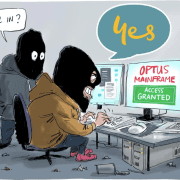Sorry – the Contrite Contrition
The mistakes that drive cynicism and undermine redemption
Saying ‘sorry’ for an incident, or issue does not ‘cut-it’ any more with affected stakeholders, or the media. Insincere apologies can make the situation even worse.
Unfortunately, CEOs have fallen into contrite contrition in just using the words, but not fully recognising the importance of the sincerity element of them. They may seek to display remorse, but they have forgotten the power ‘sorry’ possesses for people directly affected by the issue to ‘move on’ and how it can earn forgiveness.
Although saying ‘sorry’ was once the bane of all CEOs in a crisis because the legal departments would not allow it to be said for fear of admitting guilt, it now rolls off the tongue of executives whenever they feel it important to put pride aside and acknowledge a mistake.
They do it with such ease and repetition that they have forgotten two important tenants of communication –
- messages must address the affected stakeholders, not the broad community, and
- any lack of sincerity will result in the affected stakeholders feeling even more insulted, or harmed than before the artificial apology.
CEOs of the Commonwealth Bank, VW, Mitsubishi, 7/11 stores, health care organisations have all apologised for being ‘caught out’ by issues in recent times for which their organisation was responsible. They fumble with words such as ‘values’, ‘ethics’, ‘principles’ – all used to take the high moral ground and deflect blame to others down the ranks.
In most cases, they are following the ‘tried and true’ formula of crisis management – demonstrate ‘action’ after the ‘apology’ and follow it up with ‘taking responsibility’.
They use it to (a) get the media off their backs (because it gives the media the grab: “I’m sorry”) and (b) to get the staff of the organisation to ‘ensure that the issue does not happen again’.
It is called the ‘clear-up’ principle!
The formula is:
- Statement of regret – “I’m sorry that this issue has occurred.
- Statement of action – “We shall do everything to ensure that it does not happen again.”
- Statement of responsibility – “We shall take responsibility for rectifying with the issue.”
When using this formula if you don’t understand your stakeholders and their influence, you are wasting your time with general apologetic words. They become meaningless, especially in today’s age of ‘self’.
The affected stakeholders are caught in cognitive dissonance – the disconnect between what is actually true and what they believe to be true.
This causes frustration which can, in turn, manifest in not only disappointment, but also anger by those who feel cheated of the expected apology.
This is best illustrated by the article entitled Apologies and Settlement in Court Review (Volume 45, Robbennolt) which found that statements of fault acceptance had more impact than apologies that simply stated sympathy without responsibility.
Therefore, to address this disconnect the secrets for saying “sorry” today are:
- Be genuinely empathetic about your stakeholders’ situation
- ‘Tune in’ to your affected stakeholders; know exactly who and how they are being adversely affected and ensure your apology is directed at that situation
- Demonstrate that you care about them by empathising with their plight; it is good for your relationship
- Convey empathy with a genuine tone and pause after delivering your apology so it does not feel like a ‘brush off’
- Take more responsibility than necessary, especially in an ambiguous situation
- Avoid the superfluous ‘sorry’
RMKA has many years of experience in crisis and issues management around the world and the need to show the effectiveness of a sincere apology. It can provide you with the ability and supporting communication plans to not only say: “I can see you were harmed by our actions and that matters to me”, but also to understand the impact of this statement on your stakeholders and its acceptance by them.
Now practice saying: “I’m sorry….”












Leave a Reply
Want to join the discussion?Feel free to contribute!